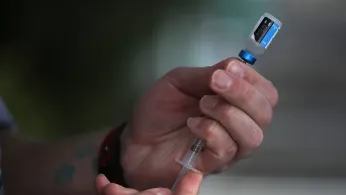
Jul 7
FDA Approves First Twice-Yearly Injectable PrEP, Marking Major Advance in HIV Prevention for LGBTQ+ Communities
READ TIME: 3 MIN.
A Landmark Approval: Yeztugo’s Impact on HIV Prevention
In June 2025, the U.S. Food and Drug Administration (FDA) approved Yeztugo (lenacapavir), a first-of-its-kind injectable HIV-1 capsid inhibitor for pre-exposure prophylaxis (PrEP), marking a historic milestone in the fight against HIV/AIDS, particularly for LGBTQ+ communities who remain disproportionately affected by the epidemic. Manufactured by Gilead Sciences, Yeztugo is now the only PrEP option in the United States that requires just two injections per year, providing adults and adolescents weighing at least 35kg with sustained protection against sexually acquired HIV.
The FDA’s approval is based on robust Phase 3 data from the PURPOSE 1 and PURPOSE 2 clinical trials, in which more than 99.9% of participants who received Yeztugo remained HIV negative over the course of the studies. This twice-yearly regimen is seen as a significant advancement over daily oral PrEP medications, which, despite their effectiveness, have posed adherence challenges for many individuals, including those from marginalized or high-risk groups within LGBTQ+ populations.
Daniel O’Day, Chairman and CEO of Gilead Sciences, described the approval as “one of the most important scientific breakthroughs of our time,” emphasizing its potential to “transform HIV prevention” and bring the world closer to ending the HIV epidemic.
Inclusive Prevention: Addressing Unique Needs of LGBTQ+ Communities
LGBTQ+ communities, and particularly transgender people and men who have sex with men, face persistent disparities in HIV infection and care. Barriers such as stigma, discrimination, and lack of culturally competent healthcare have long complicated prevention efforts. Community advocates stress that advances like Yeztugo must be paired with equitable access, outreach, and education tailored to the diverse needs of LGBTQ+ individuals to realize their full potential.
Recent research published in The Lancet HIV further underscores the importance of affirming, community-centered approaches. A study of over 8,000 transgender and nonbinary people at prominent LGBTQ+ community health centers in the U.S. found that those who received gender-affirming hormones were 37% less likely to acquire HIV than those not on hormone therapy. Moreover, among those living with HIV, access to gender-affirming care was associated with a 44% lower likelihood of having transmissible levels of the virus in their blood.
These findings offer strong support for the gender affirmation framework, which posits that when transgender people receive affirming medical care and social validation, they are less likely to engage in behaviors that increase HIV risk and more likely to achieve positive health outcomes.
Funding and Philanthropy: Closing the Gaps
The approval of Yeztugo has been accompanied by renewed calls for investment in HIV prevention, treatment, and support services for LGBTQ+ communities. Gilead Sciences, which developed Yeztugo, is recognized as a leading philanthropic funder of HIV-related programs, as highlighted in a recent report by Funders Concerned About AIDS. In addition to pharmaceutical advances, sustained funding for community-based organizations, education, harm reduction, and culturally competent healthcare remains essential to address ongoing disparities.
Despite scientific progress, advocates warn that access to these lifesaving interventions is threatened by policy changes and funding cuts that disproportionately affect LGBTQ+ people, especially transgender women and youth. Community leaders continue to push for resilient, well-resourced networks of care that can meet the evolving needs of those most at risk.
Looking Ahead: A Holistic, Affirming Approach
The approval of Yeztugo and the growing evidence supporting gender-affirming care represent major steps forward in the fight against HIV/AIDS for LGBTQ+ people. However, experts and advocates agree that biomedical breakthroughs alone are not enough. Ensuring meaningful progress will require ongoing collaboration among healthcare providers, policymakers, researchers, and LGBTQ+ communities themselves to guarantee equitable access, address social determinants of health, and affirm the dignity and diversity of all people affected by HIV.
As the fight against HIV enters a new era, the intersection of scientific innovation and inclusive, community-driven care offers real hope for ending the epidemic among LGBTQ+ populations—and for building a future where everyone, regardless of identity, can thrive.






